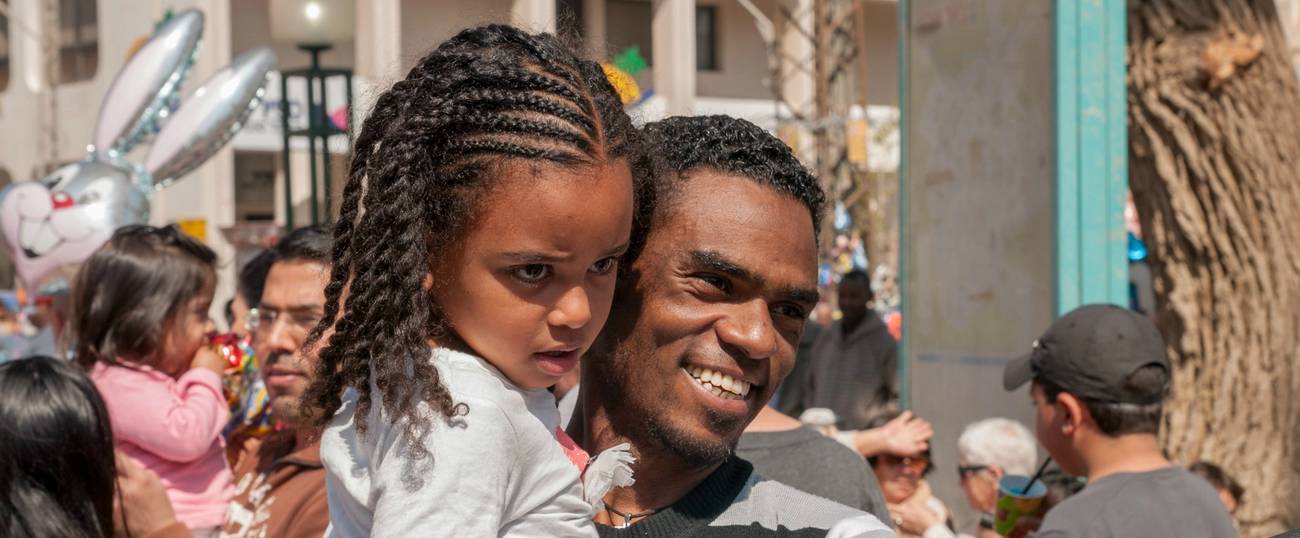Let Ethiopia’s Jewish Children Make Aliyah
I am only twelve years old. I do not understand why the Israeli government won’t let suffering Jewish children rejoin their families in Israel.




Gabrielle Sasson is entering seventh grade at Ramaz. Her family, in connection with her bat mitzvah, visited the Jewish communities of Addis Ababa and Gondar for ten days during early July. These are her impressions of the trip.
Two weeks ago, instead of starting summer camp together with my friends, I traveled to Ethiopia to visit its Jewish community. In important ways, the kids in Ethiopia felt deeply familiar to me. The children sing the same Jewish and Hebrew songs I learned in Jewish day school in New York. They recite the same tephilot. In fact, in many ways—their strong belief in God and their desire to make aliyah—they can seem even more deeply rooted in Judaism and the Jewish story.
Yet, the differences were stark—and important. The Jews in Addis Ababa and Gondar live in shacks. Large families share two small mattresses, and one or two small blankets. Their clothing is full of holes. In honor of my bat mitzvah and my cousin Micah’s bar mitzvah, our families made a small Kiddush after shul on Shabbat in Gondar. I was surprised by the excitement both adults and children felt when candy and soda was distributed. These are items my friends and I receive daily; we take them for granted. Here, kids do not have enough basic food to eat; many are malnourished.
When I visited the homes of the kids I played with in the synagogue compound, I was upset by the awful conditions. No child should have to live without running water, beds, blankets and toilets. We were so alike in so many ways yet I had so much and they had so little.
Poverty also prevents the kids from receiving medical treatment. We visited the medical clinic where Jewish children—but only those under five—had recently begun to receive medical care. The doctor said that since the program began six weeks earlier he had saved 17 lives. What would happen to the children over five, the ones I had talked to and played with in the compound, the children who still had no access to medical care? The diseases the doctor talked about—typhoid, typhus, malaria, intestinal parasites—do not even exist in New York.
These differences are heartbreaking and angering, but there is one above all others that I think is impossible to explain: That these children are not allowed to even travel to Israel.
My family has a strong connection with Israel. We travel there frequently to visit family. If we wished to make aliyah, it would be easy; we would just get on a plane. When we asked the 1,100 community members present at Shabbat services how many had close family living in Israel, almost all the hands raised. And yet, Israel will not let these children make aliyah. To prepare for my trip, I read about the difficult decades-long struggle to bring the Ethiopian Jewish community to Israel. There are currently 140,000 Ethiopian Jews in Israel; for reasons I do not understand the government of Israel is reluctant to complete the aliyah by bringing the last 10,000 to the Jewish homeland. What makes these different from all other Jews around the world? We met orphans with no one to take care of them—young children—who were not allowed to travel to Israel where their grandparents could take them in. So they live here, deprived of all of the resources that so many other Jews have, including the most important one: family.
I am only twelve years old. I do not understand why the Israeli government won’t let Jewish children rejoin their families in Israel. I certainly do not understand why the American Jewish community, which has so much and helps Jews throughout the world, refuses to help them.
All my eyes still see is their dedication to Torah. My ears hear the prayers they offer to the God I pray to every day. And my heart still feels their pain, the pain that comes from realizing that almost no one in the Jewish world seems to care.